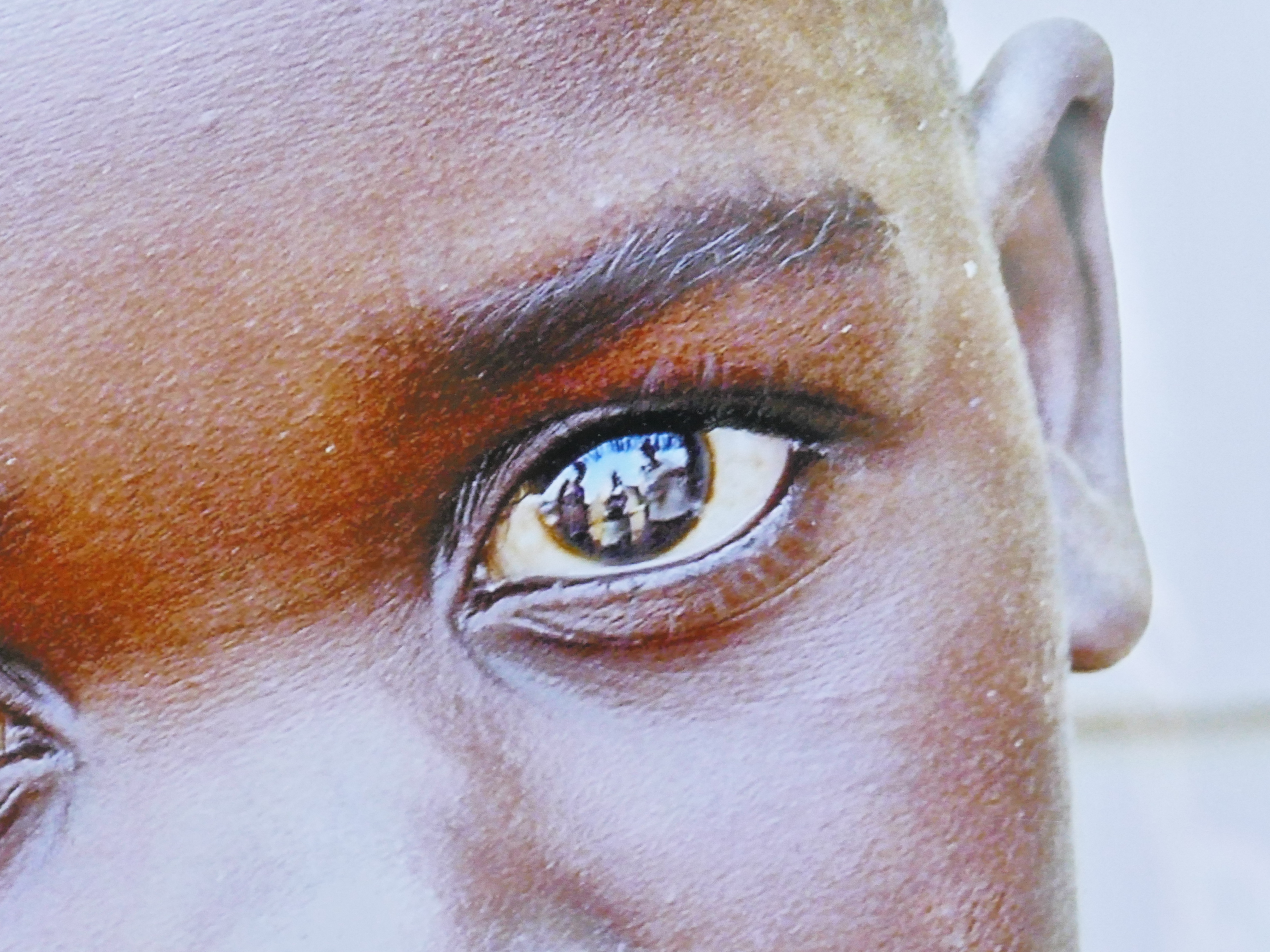Archbishop Lwanga has called all Ugandans to pray and fast for three days (starting today, 4th January) as the country prepares for the Presidential and Parliamentary Elections on 14th January.
Uganda is the country of my birth, my second home. Many of my best friends live there and I visit every year. I care about what happens.
Here are some of my random thoughts arising from my praying . . . .
I spent time looking at this haunting photo of a child in Teso taken by my granddaughter, Becky, ten years ago . He looks sad, hurt, mistrustful, hopeless and perhaps a bit bewildered. I wonder what he has already witnessed and suffered? There is no sparkle in his eyes although there are three adults perfectly reflected in them. What does he see in those adults? Does he see a picture of what he will become? What sort of future does he face in Uganda – if indeed, he is still alive?
The children are the future of Uganda but are unable to make decisions for themselves about the future. That is in the hands of all the adults. What a responsibility.
With the youngest population in the world, well over 80% of Ugandans were born after Yoweri Museveni became President in 1986 and so have known no other leader! There is no doubt that Museveni brought stability, peace and development in his early years. But there is increasing dissatisfaction with political leaders and statuary bodies and a desire for change which is hard to achieve with such high levels of corruption, repression and malpractice.
So what hope is there for Uganda? What hope is there in Uganda? Where is God? How are people of faith, who believe in God, living? How and when will things change? Can they change peacefully and democratically, through free and fair elections? Even if Museveni dies (he is now 76) or is displaced, will things change for the better? Frenchman Joseph de Maistre (1753 – 1821) expressed the sobering view that in a democracy, the people end up with the government and leaders they deserve, which is perhaps hard for any of us to accept but worth reflecting on.
Over 80% of Ugandans are Christians and 14% are Muslims. How are the Christian and Islamic leaders challenging the wrongs in society and defending the vulnerable? Are they acting together in unity as witnesses to the truth, as the Church leaders did during Amin’s rule?
Obviously we are shaped by the past – but what matters is the present, and the choices we make now. The shape of the future depends on the present. Unlike in many countries, most Ugandans do actually acknowledge God and believe in prayer, which is why they have been called to join together in prayer at this crucial point in their history.
But how should we pray and what should we ask for?
Transformation and change begin with individuals. Whoever we are, we need first to “put our own house in order”. It is what is in our individual thoughts and hearts that matters.
I find it helpful to use the ancient Celtic Circle prayer, using my imagination to picture myself enfolded by God – or a fence of protective thorns around a homestead, or the international borders around Uganda – and pray simple words such as:
Lord, encircle us/me with your love and power.
Keep light within,
Keep darkness out.
Lord, encircle me/us with your love and power.
Keep peace within,
Keep violence out.
There are so many possible ‘pairs’, such as:
Justice / corruption
Integrity / dishonesty
Love / hatred
Trust / fear
Thoughtfulness / selfishness
Hope / despair
Courage / fear
Goodness / malice
Generosity / greed
Humility / ambition
Love / jealousy
Honesty / corruption
Gentleness / violence
Forgiveness / bitterness
Repentance / self-righteousness
It is helpful not to rush through this kind of prayer but take time over each, using our imaginations, listening for God’s ‘voice’ and reflecting on what we need to do to work with God and enable this prayer to become true.
Where is God? He is not hiding nor distant. He is within every one of us, every human being, whether or not he is acknowleged and recognised. We should treat ourselves and everyone else in this way. “Love the Lord your God and love your neighbour as you love yourself.”
Since transformation needs to start with each one of us, we can start praying like this for ourselves first, before praying for each other, our communities and country.
“If my people, who are called by my name, will humble themselves and pray and seek my face and turn from their wicked ways, then I will hear from heaven, and I will forgive their sin and will heal their land.” (2 Chronicles 7:14)
In these crucial days in Uganda, I suggest adapting Bishop Trevor Huddleston’s simple prayer for Africa (as well as recalling the National Anthem and Motto):
God bless Uganda,
Guard her people,
Guide her leaders,
And give her peace.
Uganda’s National Anthem:
Oh, Uganda! may God uphold thee,
We lay our future in thy hand;
United, free for liberty
together we’ll always stand.
Uganda’s National Motto:
For God and my country.


You must be logged in to post a comment.